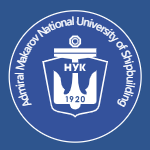Detailed introduction of National University of Shipbuilding Admiral Makarov:
Introduction
National University of Shipbuilding Admiral Makarov is a long-standing and professional higher education institution in Ukraine. It mainly trains professionals for shipbuilding and related industries, and has a high level of teaching and scientific research in the fields of ship engineering and marine technology.
Overview
Student size: The school has a total of about 12,000 students.
Number of faculty and staff: There are 68 doctoral teachers and 256 researchers focusing on new ship design, maritime safety, unmanned underwater vehicles, ship structure and engineering, marine metallurgy and marine power.
History
In April 1901, the Ministry of National Education of the Russian Empire announced the establishment of the Nikolayev Industrial Technical School, which opened on July 1, 1902 at 3 Kuznetshnaya Street (now 5 Skorokhodova Street), which is the origin of the school.
In 1926 and 1927 In 1929, the school was reorganized to teach shipbuilding technology, the duration of study was extended to four years, and laboratories such as metallurgy, chemistry, thermodynamics and engineering were equipped.
In 1929, the Nikolayev Shipbuilding Technical School merged with the Nikolayev Technical Night School and was renamed the Nikolayev Mechanical Manufacturing Institute; in 1930, it was combined with the shipbuilding department of the Odessa Polytechnic Institute and renamed the Nikolayev Shipbuilding Institute.
In 1941, when the Soviet Union was involved in the Second World War, the college had 94 teachers and nearly 700 students, and about 500 teachers and students were drafted into the army. The college moved to Stalingrad, Astrakhan and Przhevsk in the Kyrgyz Soviet Socialist Republic. During the war, the college retained 22 departments and trained 370 students. On June 30, 1944, it decided to move back to Nikolayev and reopened on October 1.
1946 In 1949, the academy was accredited for graduate courses in marine engineering and steam and internal combustion engine design, and established links with other scientific research institutions; in 1949, in honor of Admiral Stepan Makarov, a marine engineer born in Nikolaev, the academy was renamed Makarov Nikolaev Shipbuilding Academy.
In 1994, by decision of the Ukrainian Cabinet of Ministers, Makarov National Shipbuilding University received the highest level of accreditation (level 4), became a university, and adopted the new name of Ukrainian National Marine Technical University.
On March 25, 2004, Ukrainian President Leonid Kuchma granted the school the status of a national university and changed its name to its current name.
Foundation
Officially established on July 16, 1920, its history can be traced back to 1901 Years.
School Strength
Teaching Staff: The teaching staff is professional and experienced, including experts with profound attainments in the field of shipbuilding. They not only have solid theoretical knowledge, but also have rich practical experience, and can provide students with high-quality teaching and guidance.
Teaching Facilities: The school is equipped with advanced teaching facilities, such as ship design laboratories, ship power laboratories, navigation simulators, etc., which provide students with good practical teaching conditions and help students better master professional knowledge and skills.
Scientific Research Achievements: The school has carried out extensive scientific research in the fields of shipbuilding technology, marine engineering, ship power, etc., and has achieved a series of important results, which has made important contributions to the development of Ukraine's shipbuilding industry and marine economy, and has also enhanced the school's international reputation and influence.
International Cooperation: The school has established cooperative relations with many internationally renowned universities and scientific research institutions, and carried out projects such as student exchange, teacher exchange, and scientific research cooperation, providing students with a broad international exchange platform and broadening their international horizons.
Nature of the school
Public non-profit university.
Educational philosophy
Focus on cultivating students' practical ability and innovative spirit, emphasizing the combination of theory and practice, so that students can master solid professional knowledge and have the ability to solve practical problems and innovation ability to meet the needs of shipbuilding and related industries for high-quality talents.
Key laboratories and disciplines
Key disciplines: Ship engineering, marine engineering, ship power engineering, ship design and manufacturing, ship repair and modification, navigation technology, marine transportation and management, ship electrical and automation and other majors are the school's key disciplines, which are in a leading position in Ukraine. The teaching and scientific research level of some of these majors also has a certain influence internationally.
Key laboratories: The school has built a number of key laboratories, such as ship engineering laboratory, ship power laboratory, marine engineering laboratory, ship electrical laboratory, etc. These laboratories are equipped with advanced experimental equipment and instruments, providing an important platform for students and teachers to carry out scientific research projects, which is conducive to promoting discipline construction and scientific research innovation.
Department
The school has 8 colleges, 3 departments, 1 maritime school, with a campus in Kherson and representative offices in three cities in Ukraine.
Ranking
In the 2024 4icu World University Rankings, the school ranks 8010th in the world and 121st in Ukraine.
Expenses
Tuition fees vary depending on the major and degree level. The tuition fees for undergraduate majors are usually between 0-42,500 euros per year, and the tuition fees for master's majors are between 0-56,000 euros per year.
Campus
Teaching environment: The campus has complete teaching facilities, and the teaching buildings, laboratories, libraries and other buildings are reasonably distributed, providing students with a good learning environment. The school's library has a rich collection of books, covering various professional books and literature in the fields of shipbuilding and marine engineering, which is convenient for students to consult and study.
Living facilities: The school has living service facilities such as student dormitories, canteens, supermarkets, etc., which provide convenience for students' daily life. In addition, the school also has sports facilities such as stadiums and gymnasiums, providing students with a rich place for extracurricular activities.
-
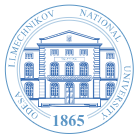
Odesa National University I.I. Mechnikov
-
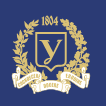
V.N. Karazin Kharkiv National University
-
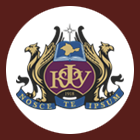
V.I. Vernadsky Crimean Federal University
-
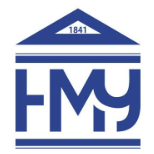
National Medical University O.O. Bogomolets
-
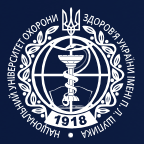
National Medical Academy of Post-Graduate Education named after P.L. Shupik
-

Taras Shevchenko National University of Kyiv
-
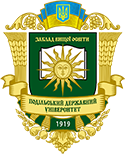
H.E.I. «Podillia State University»
-

Dnipro National University of Railway Transport named after academician V. Lazaryan
-
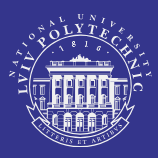
Lviv Polytechnic National University
-
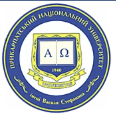
Vasyl Stefanyk Precarpathian National University
-

Mesoamerican University
-

Istmo University
-

Mariano Galvez University of Guatemala
-

Regional University of Guatemala
-

Galileo University
-

Francisco Marroquín University
-

Rafael Landívar University
-

University of the Valley of Guatemala
-

University of San Carlos of Guatemala
-

Technological Institute of Tlaxcala Plateau
-

Golfo University
-

Technological University of South Sonora
-

Technological University of Huejotzingo
-

Tizimín Institute of Technology
-

Chilpancingo Institute of Technology

